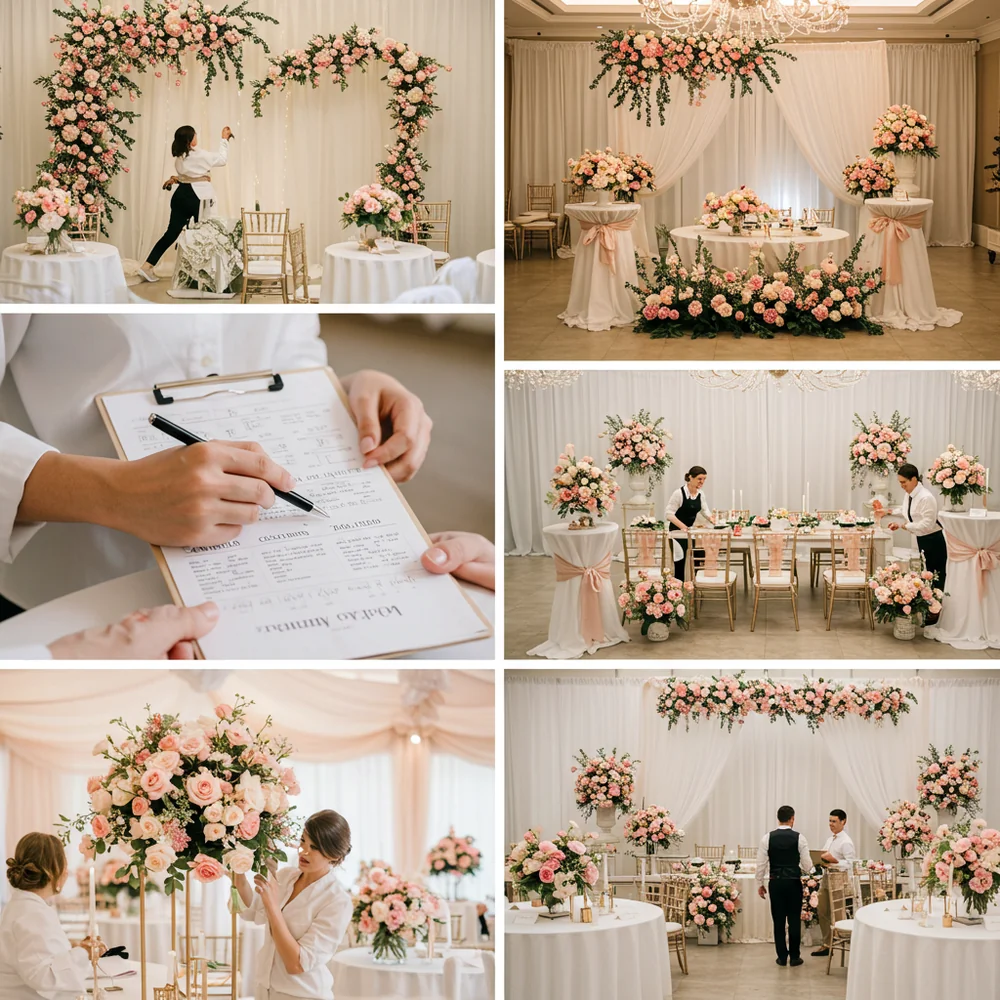
Ultimate Wedding Coordinator Checklist
Complete Wedding Coordinator Planning Checklist
A wedding coordinator’s role is to ensure every detail of the big day runs smoothly—from pre-wedding preparations to the final send-off. This detailed checklist helps coordinators organize timelines, manage vendors, oversee ceremony and reception setups, handle guest logistics, and troubleshoot last-minute issues to deliver a stress-free and memorable wedding experience.
1. Initial / Kick-off Phase
2. Mid-Planning & Coordination Phase
3. Final Weeks (1–4 Weeks Before)
4. Wedding Day – Morning & Setup
5. Wedding Day – Ceremony & Transition
6. Wedding Day – Reception & Program
7. Post-Wedding & Wrap-Up
8. Ongoing / Throughout the Process
Overall Progress
0% complete
Checklist Progress
0% complete - Ready to download!
Related Checklists
Explore more checklists in the Wedding Checklists category
Wedding Planning Checklist (Step-by-Step Guide)
Comprehensive wedding planning checklist covering all aspects from vision and budget to final preparations and post-wedding wrap-up for your perfect day.
Wedding Decor Checklist: Elegant Ideas for Your Big Day
Comprehensive wedding decor checklist covering getting-ready spaces, ceremony, reception, lighting, and all decorative elements for your special day.
Ultimate Wedding Registry Checklist for Couples
Comprehensive wedding registry checklist covering kitchen essentials, home goods, electronics, and experiences for newlyweds.
Wedding Photo Checklist: Don’t Miss a Single Special Moment
Complete wedding photography guide covering all essential shots from getting ready to reception and exit for capturing every precious moment.
Last Minute Wedding Checklist for a Perfect Day
Complete last-minute wedding checklist to ensure your big day runs smoothly — from legal paperwork and attire to venue setup, emergency kit, and final touches.
Popular Categories
Most downloaded checklist categories
Audit Checklists
Ensure accuracy and compliance with audit checklists for business, finance, and safety. Organized tools for efficient auditing.
Assessment Checklists
Streamline evaluations with detailed assessment checklists. Ensure accuracy, consistency, and efficiency in academic, workplace, and project reviews.
Home Checklists
Explore home checklists for cleaning, organization, safety, and maintenance. Keep your home efficient, safe, and clutter-free.
Car Checklists
Find essential car checklists for maintenance, safety, road trips, and inspections. Stay prepared and keep your vehicle in top shape.
Safety Checklists
Stay safe with checklists for workplace, home, and emergency preparedness. Reduce risks and stay ready for any situation.
Planning Checklists
Get planning checklists for events, projects, and personal goals. Organize tasks and achieve success step by step.

